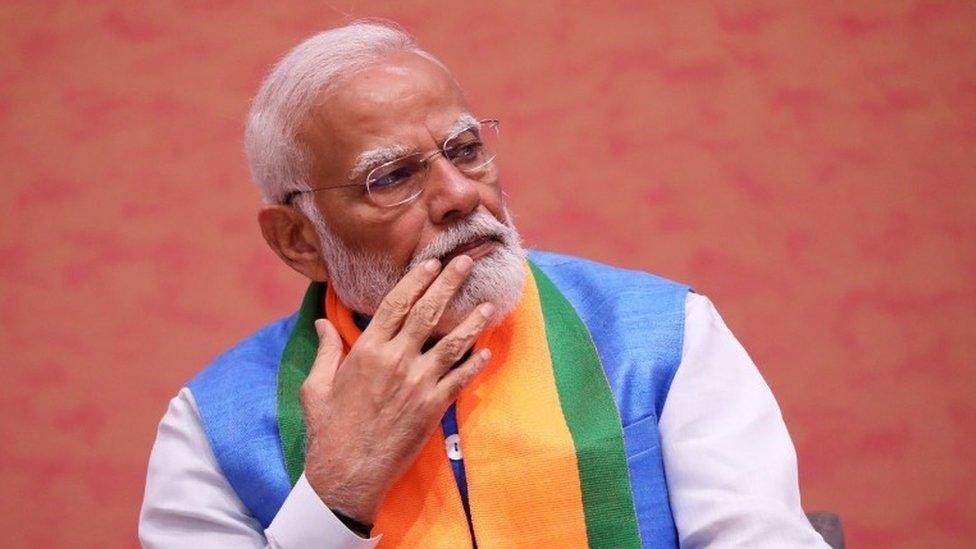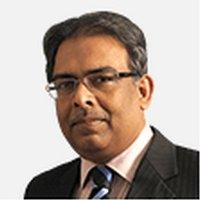Narendra Modi's first 100 days
- Published
Narendra Modi promised to help India grow again after becoming prime minister in May, Sanjoy Majumder reports on how successful his first 100 days have been
The idea of 100 days in office possibly dates back to US Democrat President Franklin Delano Roosevelt (FDR), who took charge in the midst of Great Depression and pushed through 15 key pieces of legislation to tackle unemployment and a broken financial system.
The flurry of law making - which Mr Roosevelt discovered later had taken him exactly 100 days - formed the basis of the New Deal, external, which led his country out of the downturn. There have been books written on FDR and Barack Obama's 100 days in office.
Many democratically elected governments around the world give out 100-day promises and report cards. Most recently, in March, Italy's new Prime Minister Matteo Renzi promised to "change the nation" in just 100 days.
Yet, the blinding media spotlight on Prime Minister Narendra Modi's first 100 days in office appears at once to be both unprecedented and understandable.
Wild expectations
His landslide win in May showed how Mr Modi triggered a tsunami of hope in a country bristling with both ambition and frustration. He has tried to temper expectations by pledging that he would bring about change in the 60 months that would mark the end of his first term.
So, in the words of commentator Swapan Dasgupta, the importance of "100 days is purely episodic, external" and, at best, "it is a tentative indication of the way the government plans to move".
Some of Mr Modi's supporters say his biggest achievement so far lies in the reassertion of prime ministerial authority, a sense, as a commentator wrote, "of somebody in charge, of the buck stopping with someone", external. The Economist magazine pointedly said that the prime minister's early days had "shown a curious mix of resolve and caution"., external
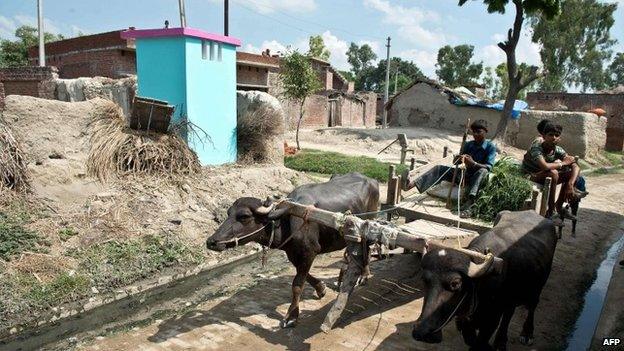
Mr Modi has pledged to provide toilets for all
Though the lacklustre federal budget produced no headline reforms and no roadmap for slashing subsidies and deficits, Mr Modi has raised foreign direct investment in defence, railways and insurance.
He has taken the first steps towards shutting down the Planning Commission, external, a Soviet-era institution to promote centralised planning, and replace it with a body which would be more mindful to the needs of India's thriving federalism. Last week, he launched a plan to provide a bank account for every household, which could end what he rightly called "financial untouchability". Delhi insiders talk about Mr Modi burning the midnight oil, and making his ministers and bureaucrats work very hard.
Mr Modi's critics say his early moves do not hint at a radical departure from the past and that he is hostage to a hand-picked team of bureaucrats who have made the prime minister's office one of the most powerful in recent times. Inflation continues to be steep. Many accuse him of centralising power, there are unconfirmed reports of his office ticking off senior ministers for dressing inappropriately, external and meeting a business tycoon for lunch. Journalists grumble that access to the government is tightly controlled.
India's trade policy has come under a cloud after Mr Modi's government scuttled a WTO trade facilitation agreement , externalover farm subsidies. Mr Modi's foreign policy, external also appears to be sending mixed signals: he clearly wants to strengthen neighbourhood ties, but the way his government cancelled talks with Pakistan after a diplomatic row was criticised by many. Pratap Bhanu Mehta who heads the Delhi-based think tank Centre for Policy Research despaired that Mr Modi's government had quickly "descended into an odd combination of trifles, bureaucratic crosshairs, alibis, risk averseness and shadowy politics of stealth"., external
Milan Vaishnav, a political scientist at the Carnegie Endowment for International Peace, a Washington DC-based think tank, says Mr Modi came to power promising to get India's economy on track. To achieve this, he says, the prime minister has to improve the quality of governance and administration in Delhi and pursue smarter economic policies. "He has made strides on the former but disappointed on the latter," he says.
Mr Vaishnav says Mr Modi cannot escape major policy reform if he is to take India to a higher growth path. "Going forward Mr Modi will have to move beyond piecemeal initiatives and outline a broader vision of policy reform. Dithering on reforms or pursuing reform by stealth are both unsatisfying strategies," he says.
Mr Modi has spoken about improved railways, bullet trains, tax reforms, more manufacturing, skill development, improved infrastructure and financial inclusion. In an unusual Independence Day speech, external, he held up a mirror to India and spoke with remarkable candour about how Indians treat women and lack civic sense, and vowed to end open defecation. India will be hoping that Mr Modi's deeds will match his lofty rhetoric.
Many say Mr Modi's promises about cracking down on corruption and venality began to look disingenuous when he decided to name a controversial party colleague accused of murder the head of his Bharatiya Janata Party. For a leader who has spoken of promoting unity in a vastly diverse country, Mr Modi has not admonished fire-breathing party leaders accused of stoking religious tensions, external with alleged hate speeches.
Also, as most believe, unless India's ragged criminal justice system is repaired, its jaded institutions rejuvenated and made truly free and social stability ensured, tinkering with economic reforms and giving stentorian pep talks alone will not help.
Mr Modi has his work cut out for him.
- Published3 September 2014
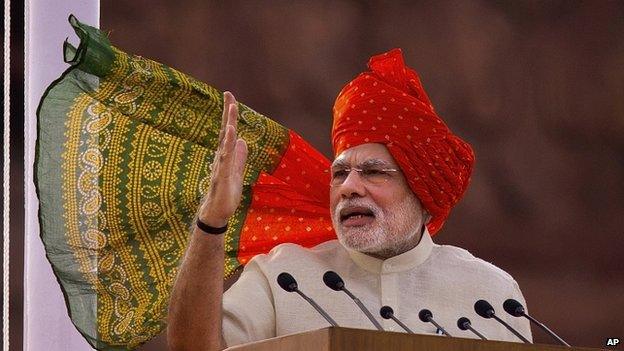
- Published15 August 2014
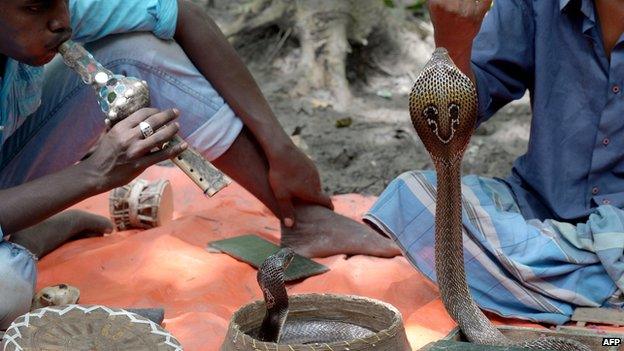
- Published26 May 2014
- Published16 May 2014
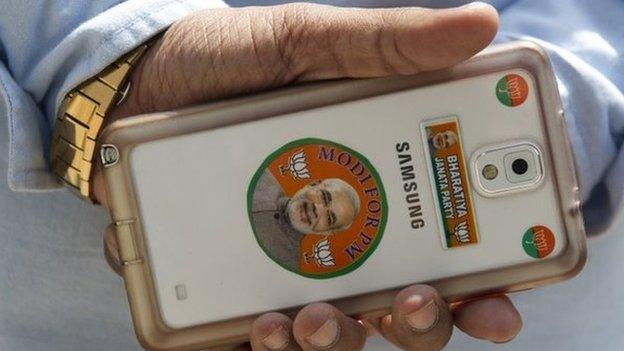
- Published23 April 2024
